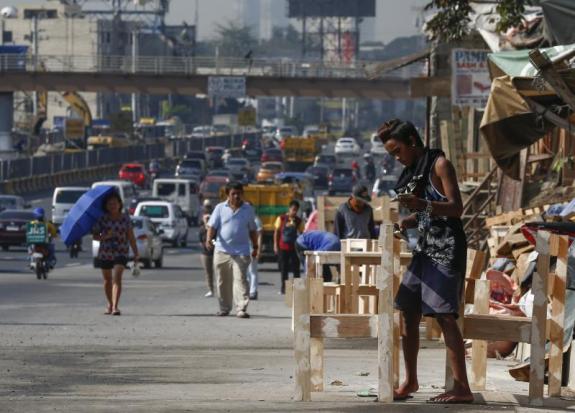Philippine economic growth fuels talk of rate hikes
The Philippines retained its position as one of the world’s fastest-growing economies with growth of more than 6% for a sixth consecutive year, fuelling calls for the central bank to start raising interest rates to keep inflation under control.
Gross domestic product increased 6.7% in 2017, the Philippine Statistics Authority said in Manila on Tuesday, matching the median estimate in a Bloomberg survey of economists. The economy rose 6.6% in the fourth quarter from a year earlier, slightly lower than the 6.7% median estimate, prompting the peso and stocks to drop.
The Philippines, one of this decade’s economic stars, is set to keep its momentum going as President Rodrigo Duterte rolls out an ambitious US$180 billion programe to build roads and railways, including Manila’s first subway. At the same time, the boom has led to twin deficits on the budget and current accounts, undermining the currency, and fueling inflation concerns.
“Although we think that the economy is not yet in overextended territory, macrostability risks could emerge as strong growth continues,” Morgan Stanley economists Deyi Tan, Zhixiang Su and Fuxin Liu said in a note released after the GDP data.
“A prompt start to rate tightening would help preserve the longevity of the growth cycle and mitigate” risks including price pressure from higher taxes and credit growth, they said.
The peso, which has lost more than 2% against the dollar this year to become the worst performer in Asia, fell 0.5% to 51.06 as of 2.17pm in Manila.
Central bank governor Nestor Espenilla has so far taken a cautious approach on tightening monetary policy. While he’s been able to do so with inflation staying inside the central bank’s 2% to 4% annual target range, price pressures may pick up on the back of higher taxes.
Commenting after the GDP data, Espenilla said both the quarterly and annual growth figures confirm the underlying strength of the economy “that rests on increasingly balanced foundation.” That gives the central bank “ample policy space to stay focused on meeting its inflation target and pursuing ambitious financial sector reforms,” he said.
Economists at JPMorgan Chase & Co and Credit Agricole SA are among those forecasting a rate hike as early as the first quarter.
Spending boom
Consumer spending, which makes up about 70% of the economy, rebounded last quarter, gaining 6.1% from a year earlier, the fastest pace in a year. Government expenditure soared 14.3% and investment increased 8.2%.
“The growth is becoming a lot more sustainable than people expected,” said Alice Fulwood, an economist at UBS Group AG in Singapore. “We expect government stimulus and expansion of credit to facilitate an acceleration in 2018. We would be looking at inflation and balance of trade, if they deteriorate that raises a question mark on the sustainability of growth.”
Source: https://www.bangkokpost.com/business/world/1400638/philippine-economic-growth-fuels-talk-of-rate-hikes


 Thailand
Thailand




